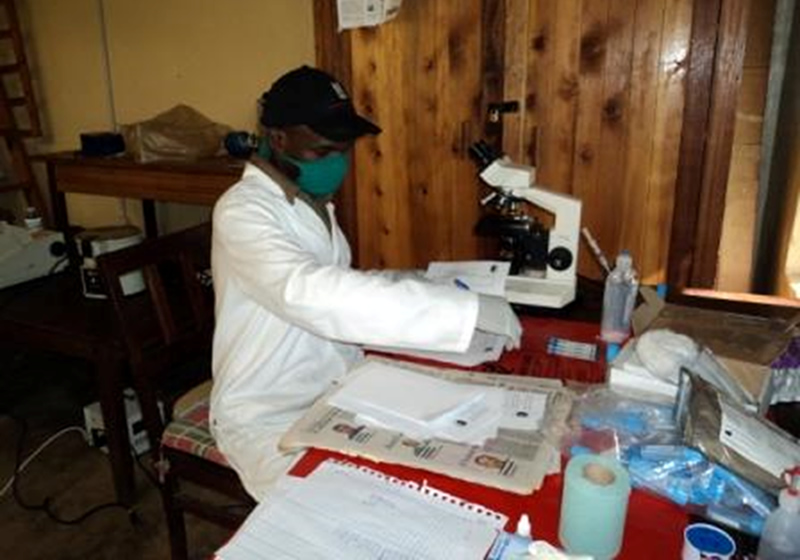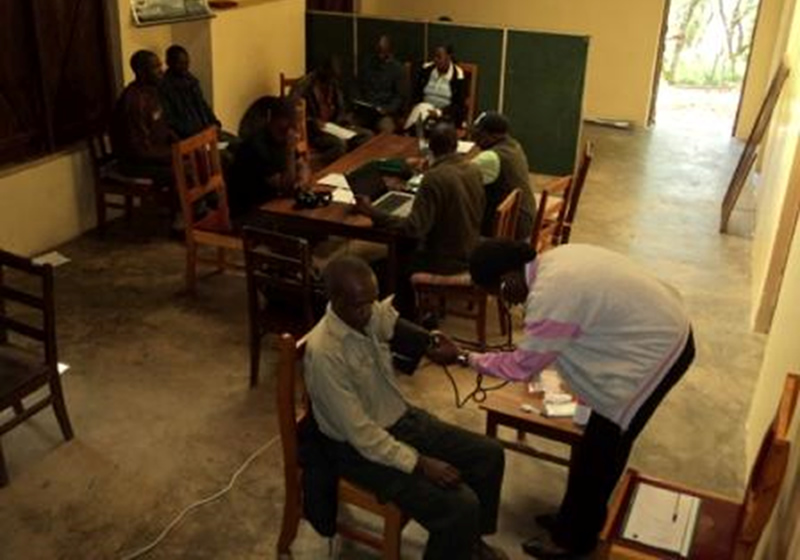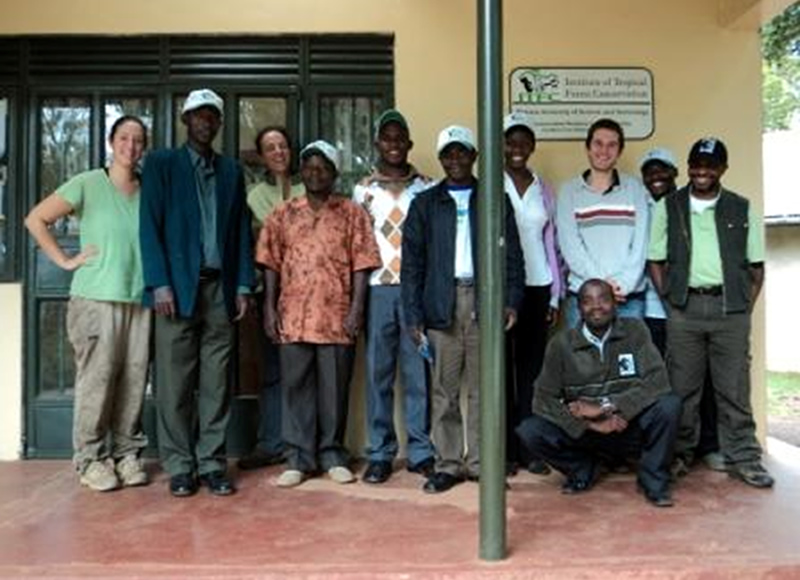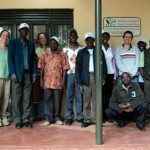We have had an exciting week here at ITFC, with 8 special visitors! First of all, on Wednesday, we welcomed Fred and Jean Paul from the Mountain Gorilla Veterinary Programme (MGVP) to ITFC, followed the next day by a group of 6 staff from Bwindi Community Hospital (BCH). Here we are all together:
But, you may ask, what do gorilla vets and community health carers have in common?
What they all came for was to check the health status of our field staff, offer advise and vaccinations and hopefully start a long term care system for people who work in the park and with the gorillas on a regular basis. Healthcare around Bwindi is not the best; good clinics are few and not always stocked with medicines. Transport to them can be a problem in itself. Therefore people are often sick for a while before seeking medical attention. If there is one worry that primate researchers (and conservationists alike) have it is the risk of human diseases passing over to the endangered species like the Mountain Gorillas, and vv. It has happened before already: in the past there has been a scabies outbreak in Nkuringo gorillas, and of respiratory diseases in Rwandan gorillas. This could especially be an issue for the people that are most often in touch with them: researchers and their field assistants who have 4 hours of observation time each day.

In Bwindi, the Max Planck Institute for Evolutionary Anthropology (MPI-EVAN) leads the Mountain Gorilla research from ITFC. MPI-EVAN already introduced some additional hygiene measures for field staff: they must leave their field clothes at the station when they go home and their boots are washed with a Dettol solution everytime before going into the forest. In addition, all wear surgical masks when getting closer to the Kyagurilo gorilla group. A next step is the introduction of an Employee Health Program (EHP) for ITFC staff. A grant Martha Robbins of MPI-EVAN secured from the German organisation BRD (Berggorilla & Regenwald Direkthilfe, or Mountain gorilla and Rainforest Aid) has made it possible to kick-start the EHP around Bwindi, in collaboration with MGVP.

Looking after the health of employees of research stations working with primates, as well as of management authorities like UWA, has become a main goal for the MGVP. They have developed the so called “One Health” approach, an integrated way of attending to the health of wild animals, the people in their vicinity, as well as their livestock. Such a health care programme has already been operational for some years around Rwanda’s Parc National de Volcans. Here in Bwindi a similar programme is underway but details are still being worked out between Uganda Wildlife Authority (UWA), Conservation Through Public Health (CTPH) and MGVP.


